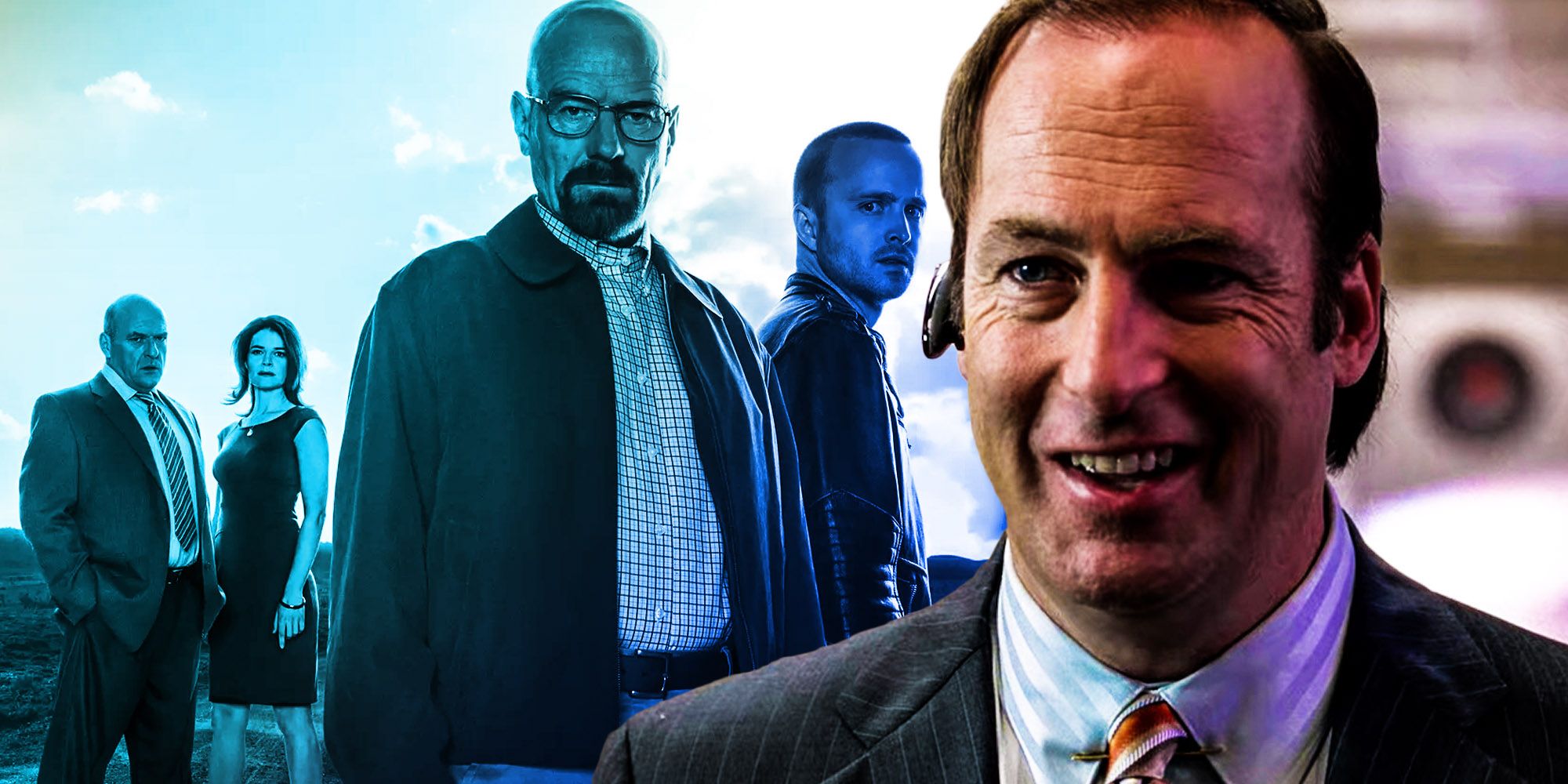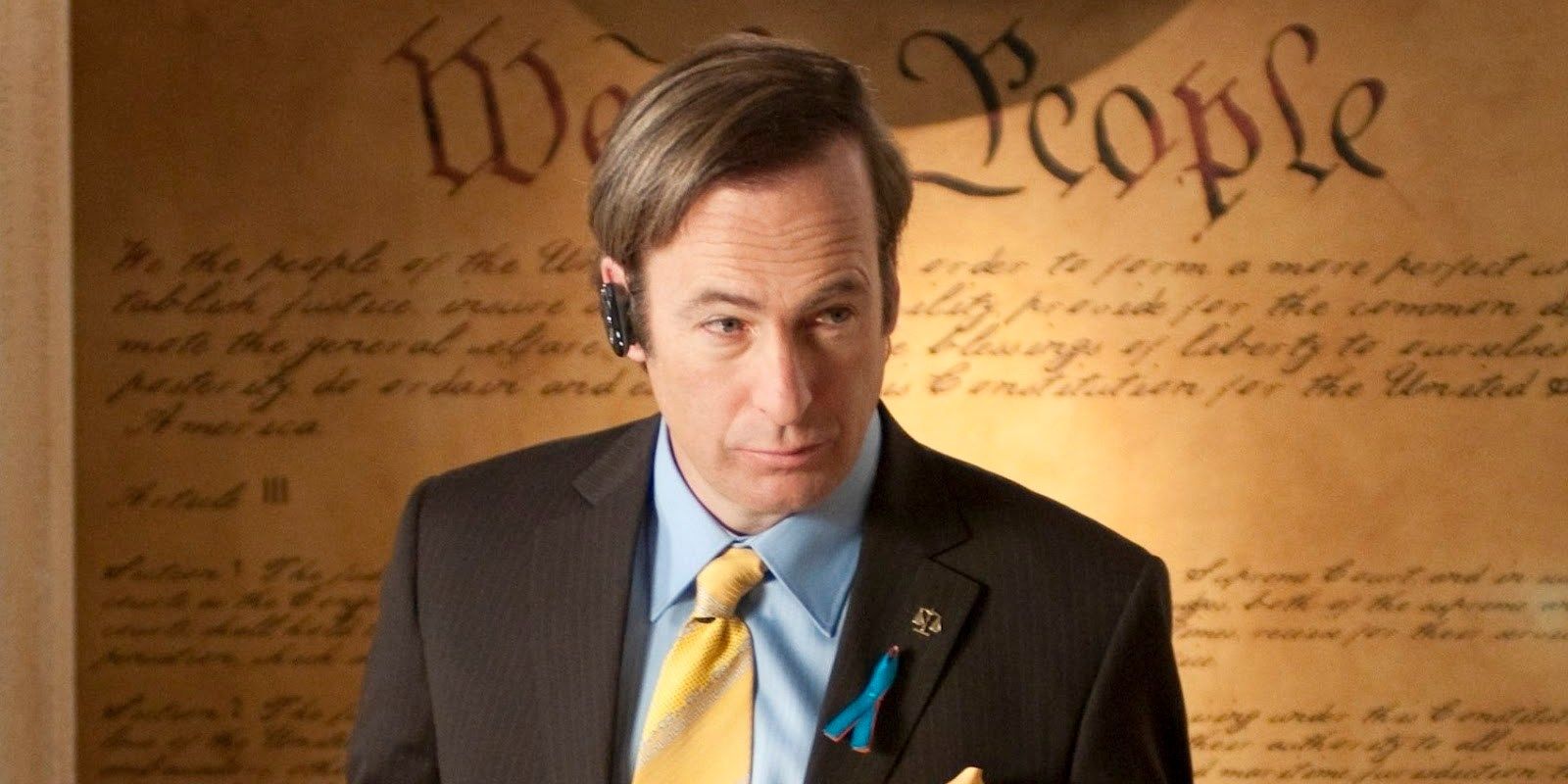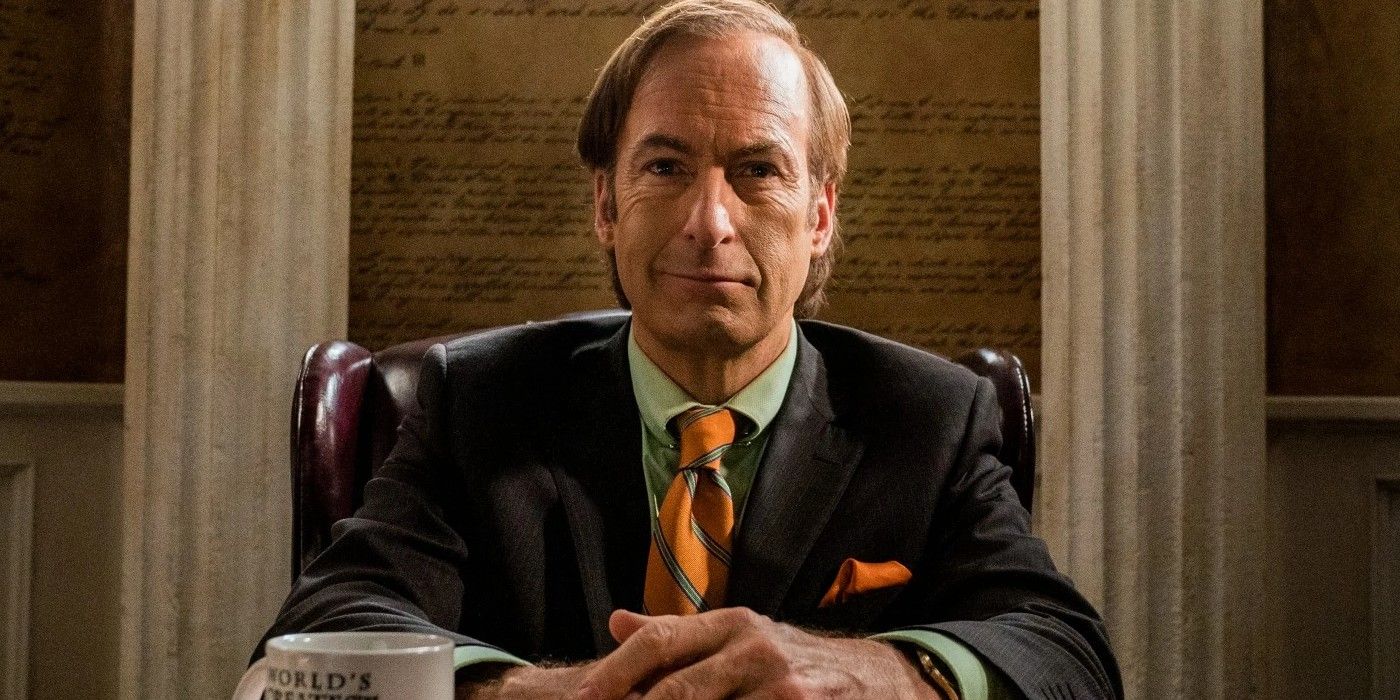Saul Goodman (Bob Odenkirk) was nearly killed off at the end of Breaking Bad, but series creator Vince Gilligan decided to scrap the plan. The scheming lawyer was first introduced in Breaking Bad season 2 before transforming into a fan favorite through the rest of the series. Due to Saul's popularity, Odenkirk's character became the focus of Breaking Bad's spinoff, Better Call Saul. The series serves as a prequel, documenting Saul during his transformation from Jimmy McGill to the strip mall ally of Walter White (Bryan Cranston) and Jesse Pinkman (Aaron Paul).
Walt and Jesse first met Saul when they hired the lawyer to deter the DEA from connecting Badger (Matt Jones) to "Heisenberg." Though Saul had his own morally questionable tricks, Walt agreed to allow Saul to serve as his legal counsel and advisor after learning Walt's true identity. In addition, Saul figured out ways for Walt to successfully launder the money obtained from the sales of his meth distribution deals. In time, Walt's wife, Skyler (Anna Gunn), also got on board with the operation with the help of the local car wash. While Saul often acted as a middle man due to his connection to Mike Ehrmantraut (Jonathan Banks), Gus Fring (Giancarlo Esposito), and the cartel, there were times when he got his own hands dirty.
In the first half of Breaking Bad season 5, Saul became aware that his partnership with Walt and Jesse was falling apart. Walt intentionally poisoned Brock (Ian Posada), and Jesse's erratic behavior was getting worse. As the dominos continued to fall, Saul's life was put in danger. Not only were all parties turning on each other, but the DEA was closing in on the truth regarding Walt's associates during his time as Heisenberg. For that reason, Saul contacted Ed Galbraith (Robert Forster), aka the "Disappearer," for a new identity. With the chance at a new life, Saul fled to Omaha, Nebraska, and became Gene Takavic. Odenkirk didn't appear in the series finale, but that almost wasn't the case. According to Gilligan's alternate Breaking Bad endings, there was an option featuring Saul's death, but then he asked himself: why bother?
Vince Gilligan Explains Not Killing Off Saul
Gilligan unveiled various Breaking Bad endings in 2014, revealing anything was truly "fair game" when developing the series finale. At one point, the crew discussed killing off Saul. In fact, Gilligan and the writers talked about killing all of the major characters. If they came up with a gratifying way to abruptly end Odenkirk's arc, they would have done so, but nothing they came up with was satisfying enough. Gilligan then realized that "Saul Goodman is kind of like a cockroach, in the sense that he’s probably going to survive all nuclear wars, and he’ll still be out there somewhere after mankind has become extinct." Therefore, he felt odd if he didn't leave Saul's future open.
How Better Call Saul Proves Why Saul Needed To Survive
One of the main themes throughout Breaking Bad's run was consequences, and while Jimmy McGill never faced any violent ones, he still had to die a more personal death. Not killing off the character was the right choice on Vince Gilligan's part, Better Call Saul's Jimmy fate proves it. Outside the character himself, one of the threads that draw Breaking Bad and Better Call Saul together is the Gene in Omaha timeline. Glimpses of Saul working as a manager of a Cinnabon appear in both series, showing his quiet misery as he lives out a mundane and meaningless existence (in his own eyes), and it's a much more fitting end for the character than his death. Had he died in Breaking Bad, it would've cast a cloud over the series, making the prequel much more tragic.
In addition, Saul dying would've cheapened the prequel show, as an answer to what happened to the character would be set in stone. Better Call Saul gave the opportunity to retroactively flesh out the character as a whole while helping showcase everything that leads up to his eventual fate. Though the Breaking Bad spinoff became a prequel, meaning Saul's death wouldn't have affected the story, the notion of the new series partially altered the character's fate. Gilligan wouldn't have wanted the spinoff to be overshadowed by Saul's Breaking Bad death. It would have fallen in line with Mike's situation, who is prominently featured in Better Call Saul despite his grim Breaking Bad demise. By keeping Saul alive, Gilligan gave himself more room to work with by tying in events that occur beyond the original series. All in all, the series made the right move for the franchise as a whole. Gilligan ultimately kept Jimmy/Saul/Gene alive to punish him for a little while longer.



